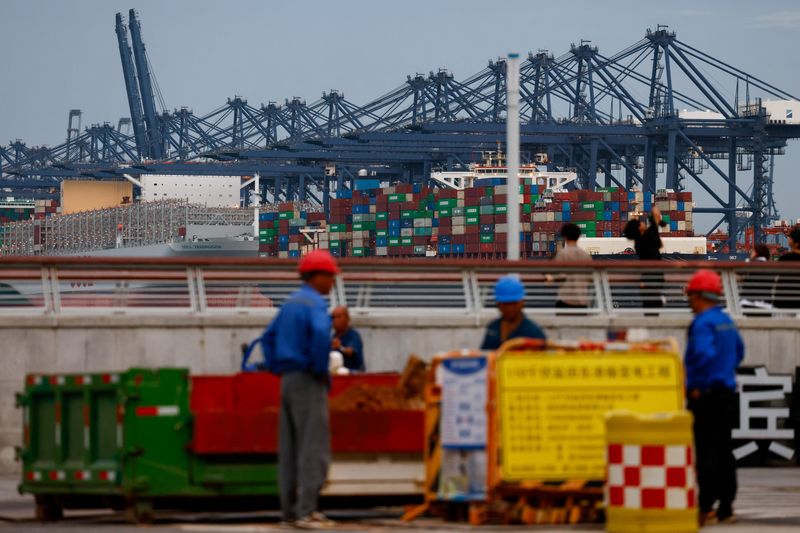Factbox-Breakdown of U.S. tariffs on China since Trump’s first term
- June 12, 2025
- Category: Futures

BEIJING (Reuters) -Billions of dollars of Chinese goods have been impacted by additional U.S. tariffs since 2018, initially under the first Donald Trump presidency and later under the Biden administration. Returning to the White House this year, Trump has imposed even more duties on China.
The U.S. tariffs range from those imposed under Section 301 of its trade act due to what Washington claims are unfair Chinese trade practices, to duties under Section 232 levied for national security reasons.
This year, Trump has imposed another 20% levies on all Chinese goods, saying Beijing has not done enough to stop the flow of fentanyl into the United States. So-called reciprocal tariffs, under which the U.S. will match duties imposed by other countries, have also been levied in a bid to rebalance trade flows.
Below are the U.S. tariffs on China effective as of June 12, 2025:
Tariff Rate Products Effective date
Reciprocal 10% All Paused for 90 days
until Aug 10, 2025
Fentanyl 20% All Mar 4, 2025
Section Up to List 1: Pharmaceuticals, July 6, 2018
301 25% iron and steel,
aluminium, vehicles and
aircraft, medical or
surgical instruments and
apparatus and more.
List 2: Vehicles, Aug 23, 2018
railway or tramway
locomotives, aircraft
and their parts, medical
or surgical instruments
and apparatus and more.
List 3: Prepared May 10, 2019
foodstuffs, beverages,
mineral products,
fertilizers, wood
products, textiles,
precious and base
metals, vehicles,
aircraft, vessels,
machinery and mechanical
appliances and more.
List 4A: Prepared Feb 14, 2020
foodstuffs, beverages,
mineral products,
fertilizers, footwear,
wood products, ceramic
products, glass,
textiles, precious and
base metals, machinery
and mechanical
appliances, vehicles,
aircraft, vessels, art,
antiques and more.
In September 2019, the U.S. imposed 15% tariffs on more than $120 billion of Chinese goods under Section 301, which it then halved to 7.5% less than six months later.
The 25% U.S. tariffs on $250 billion of Chinese goods under the earlier List 1-3 remain unchanged.
In September 2024, the U.S. Trade Representative under the Biden administration announced additional tariffs of 25-100% on 14 product groups following a four-year review of the Section 301 tariff actions. The levies were imposed on strategic Chinese sectors or sectors where the United States has made significant domestic investments.
Additional tariffs on goods under Section 301: Effective
date
EVs 100% Sep 27, 2024
Solar cells, syringes and 50%
needles
Non-lithium-ion battery parts, 25%
lithium-ion electrical vehicle
batteries, other critical
minerals, ship-to-shore
cranes, steel and aluminium
products, facemasks
Semiconductors 50% Jan 1, 2025
Lithium-ion non-electrical 25% Jan 1, 2026
vehicle batteries, medical
gloves, natural graphite,
permanent magnets
In addition to the above duties, the first Trump administration in 2018 imposed a range of tariffs under Section 232 aimed at restricting goods deemed a threat to national security, including all aluminium and steel imports, shutting most Chinese suppliers out of the U.S. market.

